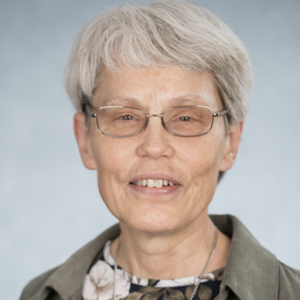
Readings:
Reading I: Isaiah 2:1-5
Psalm 122: 1-2, 3-4, 4-5, 6-7, 8-9
Reading II: Romans 13:11-14
Gospel: Matthew 24:37-44
“You do not know the day on which your Lord will come.” This may seem like a strange statement with which to begin Advent, since we know exactly which day we will be celebrating Christ’s coming: December 25. Of course, we don’t know for sure that this is Jesus’s literal birthday, but we know that he was born and that for millennia Christians have celebrated this fact on that day. What we need to remember, though, is that the people who lived at the time of his birth did not know that in this child, the Lord had come. The Bible stories suggesting some of them did are all hindsight, composed decades later after the conviction that “Jesus is Lord” had become the bedrock of faith for the emerging Christian communities. Most likely, not a single person knew the Lord had come in Jesus until decades after his birth.
In other words, the people then were actually in the same situation that we are. We don’t know when the Lord is coming, whether to one of us in an epiphany of the heart or to all of us at the end of time. Like the people then, we have ideas, images, assumptions, and expectations about how God will come; but the more we try to elaborate and insist on these with certainty, the more elusive God seems to become. It is the nature of the living God not to conform to human expectations. God will come in God’s own way, at God’s own time, shaking the very foundations of all our confident assumptions.
The readings for today emphasize staying awake and being prepared for the coming of the Lord. But they also tell us that we live in darkness, so we cannot see whether it is the thief or the Lord who lurks in the surrounding night. We have to be prepared to respond appropriately, whichever one suddenly breaks through the door. If we do not recognize him, the shocking break-in of the Lord may feel like a home invasion. On the other hand, if the thief is clever, he may sell himself as our long-lost friend. It is all-important that we be able to recognize the Lord when he comes, even if (as will probably be the case) it is at an unexpected time or place.
How do we recognize him? In classical texts of Christian discernment, the number one sign of the genuine presence of God is peace. Evil, or resistance to God, brings uproar and turmoil; God and God’s messengers bring joy and peace of heart. The peace brought by God is meant to be not only individual, but communal. Today’s first reading and psalm sketch for us a beautiful vision of the whole world at peace. It is poignant to read this in a time when raging wars kill thousands daily; and perhaps even more poignant when we ponder the fact that, from the time of Jesus until now, there has probably never been a day without war. Yet our God is a God of peace, and if we are to know him, we must be countercultural enough to seek the way of peace even as the sirens of war blare.
On a more personal level, it is always possible that a superficial experience of peace may lack the genuine quality of the peace of God. For this reason, great teachers of discernment like Ignatius Loyola add other criteria to test and verify it. Ignatius notes that those who have not been preparing themselves are those most likely to be fooled by ersatz peace – that is, the thief selling you a line about being the friend you’ve always been looking for. Those who have prepared by learning all they can about the ways of God, dedicating time to alertness toward God in prayer, and practicing humility and charity have a better chance of correctly identifying the eruption of the living God, even if it does not initially feel peaceful. Advent is a special time that we have been given for this preparation. Let us vow not to waste it!